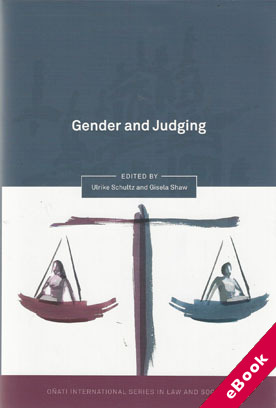
The device(s) you use to access the eBook content must be authorized with an Adobe ID before you download the product otherwise it will fail to register correctly.
For further information see https://www.wildy.com/ebook-formats
Once the order is confirmed an automated e-mail will be sent to you to allow you to download the eBook.
All eBooks are supplied firm sale and cannot be returned. If you believe there is a fault with your eBook then contact us on ebooks@wildy.com and we will help in resolving the issue. This does not affect your statutory rights.
Does gender make a difference to the way the judiciary works and should work? Or is gender-blindness a built-in prerequisite of judicial objectivity? If gender does make a difference, how might this be defined? These are the key questions posed in this collection of essays, by some 30 authors, from 15 countries representing all five continents, whose answers draw on various theoretical approaches, including gender, feminist, and sociological theories.
The book's pressing topicality is underlined by the fact that well into the modern era male opposition to women's admission to, and progress within, the judicial profession has been largely based on the argument that their very gender programmes women to show empathy, partiality and gendered prejudice - in short essential qualities running directly counter to the need for judicial objectivity.
It took until the last century for women to begin to break down such seemingly insurmountable barriers. And even then, there remain a number of countries where even this first step is still waiting to happen. In all of them, there remains a more or less pronounced glass ceiling to women's judicial careers.